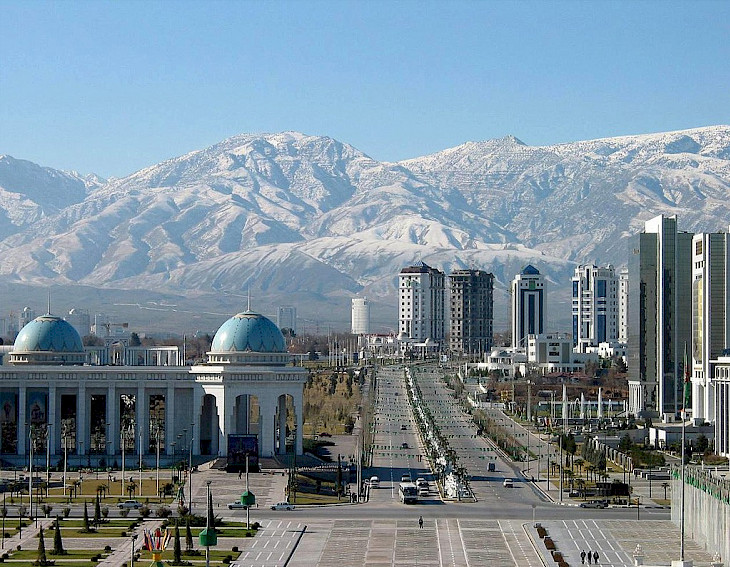Tajikistan (officially the Republic of Tajikistan) is a landlocked country in Central Asia.
It is bordered by Afghanistan to the south, Uzbekistan to the west, Kyrgyzstan to the north, and China to the east. It is separated narrowly from Pakistan by Afghanistan's Wakhan Corridor.
Tajikistan has an area of 143,100 km2 and an estimated population of 9,749,625 people. Mountains cover more than 90% of the country.
Most of Tajikistan's population belongs to the Tajik ethnic group, who speak the Tajik language — the first official language — making it one of the three Persian speaking countries alongside Afghanistan and Iran. Russian is used as the official inter-ethnic language. While the state is constitutionally secular, Islam is nominally adhered to by 98% of the population.
Its capital and largest city is Dushanbe with 846,400 people living there.
The national currency is somoni, which was introduced on 30 October 2000, replacing the rouble.
On 9 September 1991, Tajikistan declared itself an independent sovereign nation as the Soviet Union was disintegrating. A civil war was fought almost immediately after independence, lasting from 1992 to 1997. Since the end of the war, newly established political stability and foreign aid have allowed the country's economy to grow.
The state system of Tajikistan is determined by the constitution adopted on November 6, 1994. Tajikistan is a presidential republic. The country has been led by President Emomali Rahmon since 1994.
Legislative power is exercised by a bicameral parliament - the Supreme Assembly of Tajikistan.
Tajikistan is a developing country with a transitional economy that is highly dependent on remittances, aluminium and cotton production. Tajikistan is a member of the United Nations, CIS, OSCE, OIC, ECO, SCO, and CSTO as well as a NATO PfP partner.

